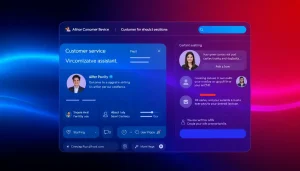Comprehensive Level 4 Counselling Answers: Elevate Your Understanding Across 7 Key Units
Understanding the Level 4 Counselling Diploma
Overview of Level 4 Counselling
The Level 4 Diploma in Therapeutic Counselling is a necessary qualification for individuals aspiring to become professional counselors in the UK. This qualification is crucial because it marks a significant step in one’s journey toward becoming a skilled and competent therapist. It consists of seven distinct units that cover a wide array of topics essential for developing counseling skills and theoretical knowledge.
The diploma not only prepares candidates to work in a variety of therapeutic settings but also emphasizes the importance of ethical practice and personal development. Gaining Level 4 counselling answers enhances one’s understanding and application of therapeutic concepts and methodologies.
Importance of Accredited Training
Accredited training is fundamental for ensuring that counselors possess the necessary skills and knowledge to practice effectively and ethically. The Level 4 Diploma is accredited by recognised professional bodies, such as the National Counselling Society (NCS) and the British Association for Counselling and Psychotherapy (BACP). These endorsements validate the training’s quality and align it with industry standards.
Such accreditation not only fosters client trust but also remains a critical factor when seeking employment within various agencies or private practices. Counseling is a field that necessitates continuous learning and adapting to new research and best practices, emphasizing the value of such accredited programmes.
Common Curriculum Topics
The curriculum for the Level 4 Diploma is designed to blend theoretical knowledge with practical application. Here are some common topics covered in the various units of the course:
- Core Counseling Skills and Techniques
- Humanistic and Psychodynamic Approaches
- Counseling Ethics and Professional Standards
- Self-awareness and Reflection Techniques
- The Importance of Supervision in Counseling
- Understanding and Working with Diversity
An understanding of these topics helps aspiring counselors prepare for real-world scenarios and equips them with the tools necessary to navigate the challenges faced in therapeutic environments.
Key Units in Level 4 Counselling
Unit 1: Introduction to Therapeutic Counselling
This unit provides an overview of the fundamental principles of therapeutic counseling. It introduces students to the different modalities of counseling, including humanistic, cognitive-behavioral, and psychodynamic approaches. The focus is on understanding what therapy entails, the role of the therapist, and the process of establishing a therapeutic relationship.
Students will engage in discussions about ethical standards and professional responsibilities, highlighting the importance of building trust and rapport with clients as a precursor to effective therapy. Additionally, this unit emphasizes the need for self-awareness in therapeutic practice, encouraging counselors to explore their biases and emotional responses.
Unit 2: Ethical Frameworks in Practice
Unit 2 deepens participants’ understanding of ethical considerations crucial to effective counseling. This unit covers various ethical frameworks and how they guide practice in the therapeutic context. Students will learn about the British Association for Counselling and Psychotherapy’s ethical guidelines, and the importance of confidentiality, informed consent, and safeguarding in counseling practice.
Real-life case studies will be examined to illustrate ethical dilemmas counselors may face and the appropriate actions to take in resolving such dilemmas. This unit aims to equip future counselors with the knowledge to navigate the complex ethical landscapes inherent in therapeutic relationships.
Unit 3: Counselling Skills and Techniques
The third unit focuses on the development of core counseling skills, including active listening, empathy, and the use of open-ended questions. Practical exercises and role-plays enhance students’ abilities to communicate effectively, enabling them to provide empathetic responses to clients’ needs.
In addition to verbal communication techniques, this unit also covers non-verbal communication’s role in therapy. Future counselors will learn how to interpret body language, facial expressions, and other non-verbal cues that can significantly impact the counseling process.
Effective Study Strategies for Level 4 Counselling
Organizing Your Study Schedule
Effective time management is essential for succeeding in the Level 4 Diploma. Developing a study schedule that incorporates all units and allows time for revision can significantly enhance a student’s learning experience. Here are some tips for organizing a study plan:
- Set Specific Goals: Define what you hope to achieve by the end of each week and month.
- Break Down Material: Divide the syllabus into manageable parts to avoid feeling overwhelmed.
- Utilize a Calendar: Keep track of assignment due dates, examination schedules, and regular practice sessions.
By staying organized, students can ensure they cover all necessary material and reinforce their learning, which ultimately leads to better retention of knowledge.
Utilizing Resources and Materials
Making the most of available resources is crucial for students pursuing their Level 4 Diploma. Here are ways to utilize materials effectively:
- Textbooks and Recommended Readings: Use these as starting points for deeper exploration of topics.
- Online Forums and Study Groups: Engage with peers to share insights and discuss challenging concepts.
- Practice Assessments: Take advantage of previous assignments and exam questions to familiarize yourself with exam formats.
By utilizing these resources, students can enrich their knowledge and gain confidence in their understanding of therapeutic concepts.
Practicing Reflective Learning
Reflective learning is a significant aspect of counselor education. Students should adopt a habit of maintaining a reflective journal where they document their learning experiences, insights, and personal growth throughout the course. Reflective practice allows individuals to:
- Assess their understanding of course material critically.
- Consider ways to improve their skills and approach to counseling.
- Explore emotional responses to their learning experiences.
This practice enhances personal and professional development, equipping future counselors with the ability to continuously learn and adapt in their careers.
Application of Level 4 Counselling Answers
Real-Life Scenarios in Therapeutic Practice
Applying theoretical knowledge to real-life scenarios is vital in the training of effective counselors. Through supervised practice, students can gain hands-on experience that reinforces their learning. Scenarios may include managing a client presenting issues of anxiety, depression, and other mental health concerns.
By using role-plays or real-life cases, students can practice their counseling skills in a controlled environment. The ability to navigate these discussions helps prepare them for actual client interaction post-graduation.
Supervision and Professional Development
Professional supervision is an essential part of counseling practice. It allows counselors to reflect on their clinical practice, discuss difficult cases, and receive feedback from experienced supervisors. This process contributes to personal and professional growth.
Moreover, engaging in supervision underlines the importance of self-care for counselors, ensuring they maintain their mental well-being while supporting clients. It’s a space for vulnerability where counselors can address their struggles, receive guidance and develop resilience in their practice.
Case Studies: Learning from Experiences
Case studies provide a unique opportunity for learning by showcasing real counseling experiences. Analyzing various case studies helps students understand the application of theoretical knowledge, hone their analytical skills, and evaluate the effectiveness of different counseling approaches.
When reviewing case studies, it is essential to consider the context, the challenges presented, and the approaches taken. Students should look for outcome measures to assess the effectiveness of the counseling interventions used and reflect on what they might have done differently.
Advancing Your Career After Level 4 Counselling
Potential Job Opportunities
Upon completing the Level 4 Diploma in Therapeutic Counselling, graduates can explore a wide array of career opportunities, including:
- Working in Mental Health Services
- Private Practice as a Counsellor
- Employment in Educational Settings
- Roles within Charities or Non-profit Organizations
- Positions in Employee Assistance Programs (EAPs)
These roles often require a combination of the skills and knowledge gained through the Level 4 training, ensuring that graduates are well-equipped to meet the diverse needs of clients across various settings.
Further Education and Specialization
After obtaining the Level 4 Diploma, many individuals choose to pursue further education to enhance their qualifications further. Options may include:
- Studying for a Level 5 Diploma in Counseling.
- Pursuing a Bachelor’s degree in Psychology or Counseling.
- Attending specialized training programs in areas such as trauma-informed care, child counseling, or couples therapy.
Going above and beyond the initial qualifications can lead to specialized career pathways and greater job satisfaction.
Networking and Professional Associations
Joining professional associations such as the BACP or the NCS provides valuable networking opportunities for counselors. These organizations offer resources for continued education, access to job boards, and forums to discuss trends within the field.
Networking with other professionals can lead to mentorship opportunities and collaborative projects, promoting professional growth and shared experiences while serving clients more effectively.













Post Comment